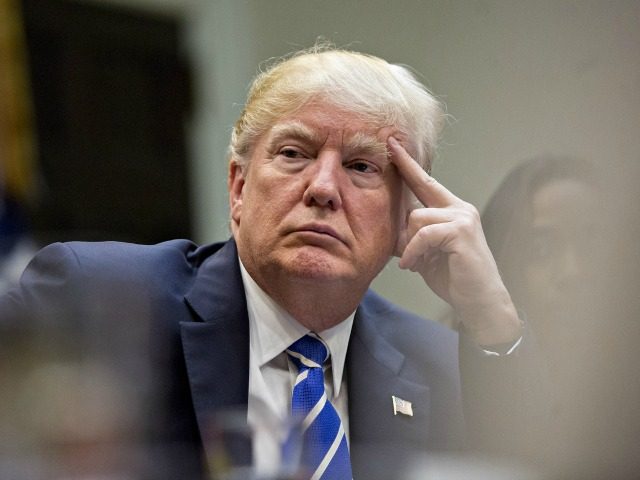Some of us are old enough to remember what it was like before November 8, 2016, the days when Republican nominee Donald Trump was widely—and sometimes quite openly—despised by a GOP Congressional establishment wary of his nationalist agenda and convinced that he would be resoundingly defeated.
All that changed when Trump pulled off his remarkable electoral feat, winning rust belt states that hadn’t been in play for Republican presidential candidates in decades. Suddenly, the establishment GOP inside the Washington Beltway became quite comfortable with the notion of a Trump presidency that might help advance certain select items on their partisan wish list, such as tax reform and the repeal of Obamacare, that had gone nowhere with a Democrat in the Oval Office.
Beltway Republicans came out of the woodwork to advise the president-elect that if he wanted to accomplish anything he ran for office on, he would have to staff his administration with old GOP pros who had good relations with those on the other end of Pennsylvania Avenue. These are the people, it was argued, who knew how to round up the votes, which was something Trump and his tiny inner circle would find impossible to accomplish without active collaboration with the very Republican establishment he had spent the last year trashing (and who had spent the last year trashing him).
Largely convinced by these arguments that he needed to use traditional means and win over the GOP caucus in order to advance his agenda, Trump decided on a strategy of staffing some of the key posts in his administration with people who could, ostensibly, manage relations with the Hill and push through important legislation by winning over certain components of the Republican caucus: Chief of Staff Reince Priebus would serve as a direct conduit to Speaker Ryan, Budget Director Mick Mulvaney could help corral the unruly Freedom Caucus types, and so on. Trump may have run for office against the GOP establishment, but he now needed them desperately, or so he was told, if he hoped to get anything accomplished.
It’s now apparent that the strategy of relying on old GOP hands to manage the Republican caucus has been an abject failure. With the collapse of the Republican health care bill in the Senate, and the rest of the Trump agenda that relies on legislative action hopelessly stalled, it is past time for a course correction. While it has been rumored for months that his chief of staff is on the verge of getting the axe because of the president’s simmering frustration with his inability to control the constant leaks emanating from the White House and to keep his cabinet members in line and on message, Priebus has been able to delay his fate largely because his presence has been viewed as essential to shepherd health care and tax reform through the House and Senate.
Now that Majority Leader Mitch McConnell has pulled the plug on the Republican health care bill and Freedom Caucus members in the House are threatening to hold the budget hostage to their demand to eliminate the border adjustment tax that Speaker Ryan has promoted as a tariff alternative, the argument for continuing to rely on Priebus, Mulvaney and other GOP types in the administration, to manage relations with the caucus seems weaker than ever.
Senator John McCain, no ally of the president, may have been onto something when he reacted to the collapse of the effort to herd Republican votes by opining that leadership should jettison the so-called “Hastert rule” requiring majority support in the GOP caucus before any bills are put to a floor vote. “One of the major problems with Obamacare was that it was written on a strict party-line basis and driven through Congress without a single Republican vote,” McCain said in a statement. Republicans “must not repeat the original mistakes that led to Obamacare’s failure,” he argued, recommending that “Congress must now return to regular order, hold hearings, and heed the recommendations of our nation’s governors” to produce a viable health care bill.
With GOP leadership decidedly unenthusiastic about major aspects of the Trump agenda from trade to infrastructure to building the wall, the president might consider going above the heads of the party’s Hill veterans and taking his case back to the people, particularly in states with vulnerable Democrats or problem Republicans. For a Chief Executive practiced in the Art of the Deal, it makes more sense to try to forge new coalitions yourself than to continue to rely on partisan fixers who can’t deliver. The voters who put the president in office are still out there, and they are reaching the point of frustration where they might just be ready to send him some new allies in the House and the Senate to get his agenda through if the old Republican crowd can’t get the job done.
Robert Wasinger served in senior advisory and liaison roles in President Trump’s campaign and transition team, after extensive experience on Capitol Hill.

COMMENTS
Please let us know if you're having issues with commenting.